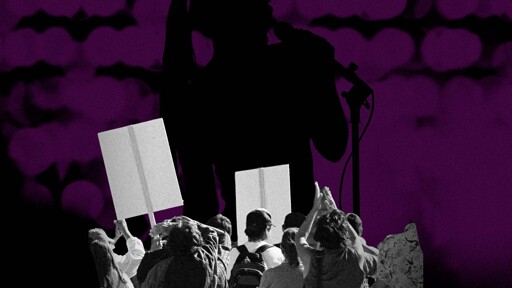The 69th edition of the Eurovision Song Contest kicks off this week in Basel, Switzerland, and as always, it promises a heady mix of pomp, power ballads and geopolitics. While fans gear up for a week of camp performances and dramatic key changes, this year’s competition is also weighed down by controversy over Israel’s continued participation, with questions about who gets to perform—and why—looming larger than ever.
Israel has competed in Eurovision since 1973 and has won four times—most recently in 2018 with Netta’s viral hit “Toy”—and this is not the first time its participation has been contentious. Several Arab nations, including Tunisia and Lebanon, have historically chosen not to compete because of broadcast regulations against airing content affiliated with Israel. It has also been accused of using Eurovision as a form of pinkwashing—promoting an image of LGBTQ2S+ tolerance while drawing attention away from its human rights record. For example, Dana International became the contest’s first openly trans winner when she competed for Israel in 1998. In interviews, the singer has admitted that “there’s something to that” accusation that she has been used for pinkwashing Israel’s image.
In 2019, when Tel Aviv hosted the contest after Netta’s win, the Boycott, Divestment and Sanctions (BDS) movement urged people to skip that year’s competition. While no broadcaster ended up withdrawing, protests punctuated the event. Madonna’s performance during the broadcast of the final included a dancer wearing a Palestinian flag and Iceland’s entrant Hatari held up a pro-Palestine banner during the televote—both in violation of the contest’s ban on political statements. Calls for Israel’s exclusion have intensified since the Oct. 7 Hamas attack in 2023 and Israel’s ensuing invasion of Gaza, which have prompted accusations by organizations like Amnesty International that the country is responsible for a genocide against Palestinians. This year, Israel is represented by Yuval Raphael, a singer who survived the Oct. 7 attack. Her song, “New Day Will Rise,” is framed as a message of resilience, but amid ongoing violence in Gaza and the West Bank, some see it as a “provocation.” One Eurovision blogger wrote that the song “can’t be construed as anything but political.”
Israel’s continued participation represents a stark contrast to how the European Broadcasting Union (EBU), which organizes the contest, handled Russia’s invasion of Ukraine. In 2022, Russia was expelled from Eurovision. Why, many ask, does Israel get to stay?


